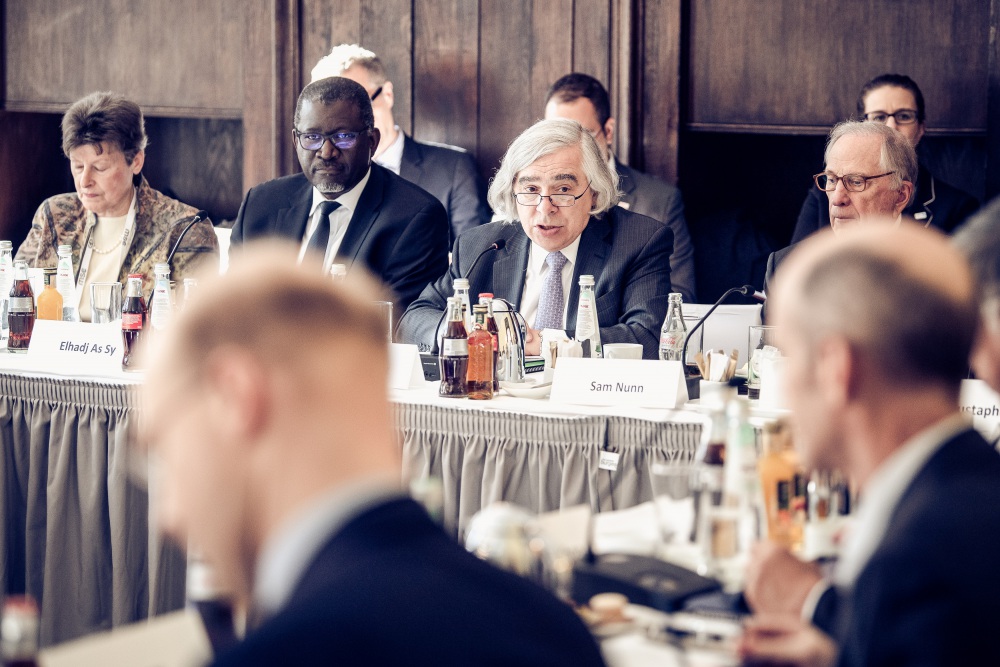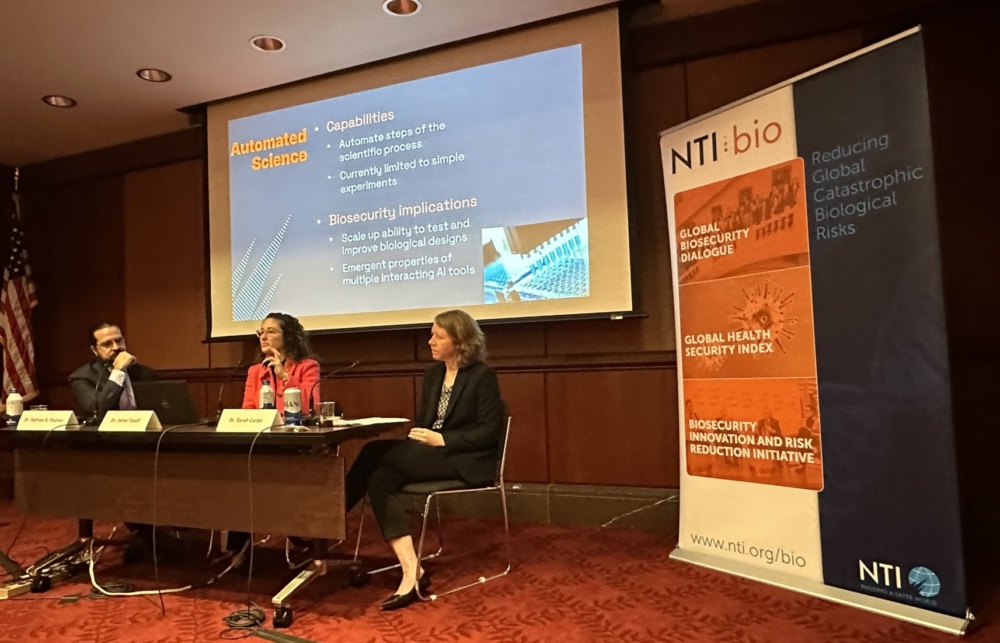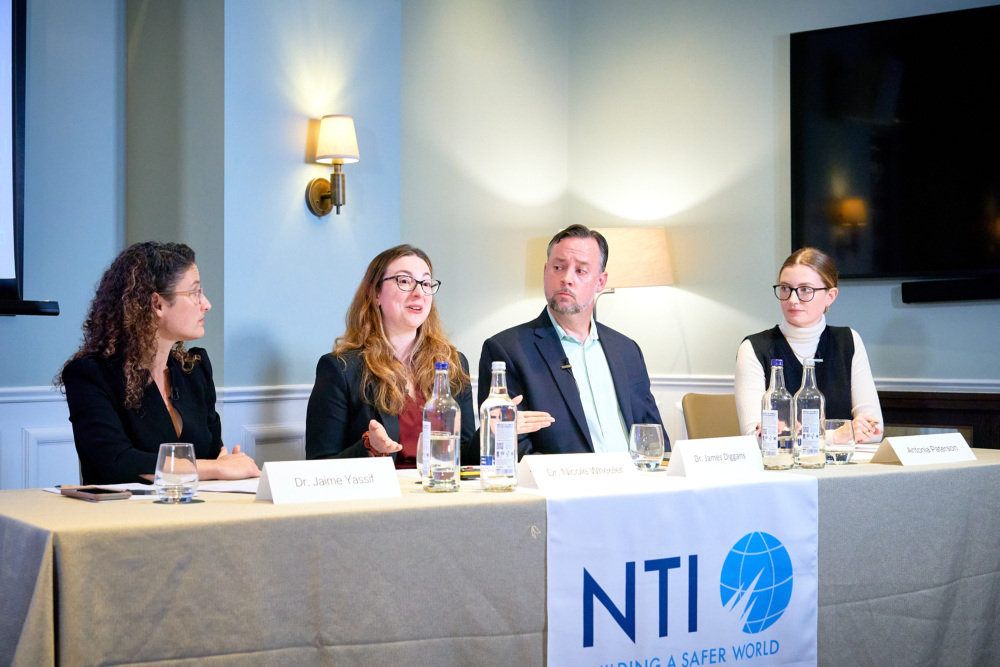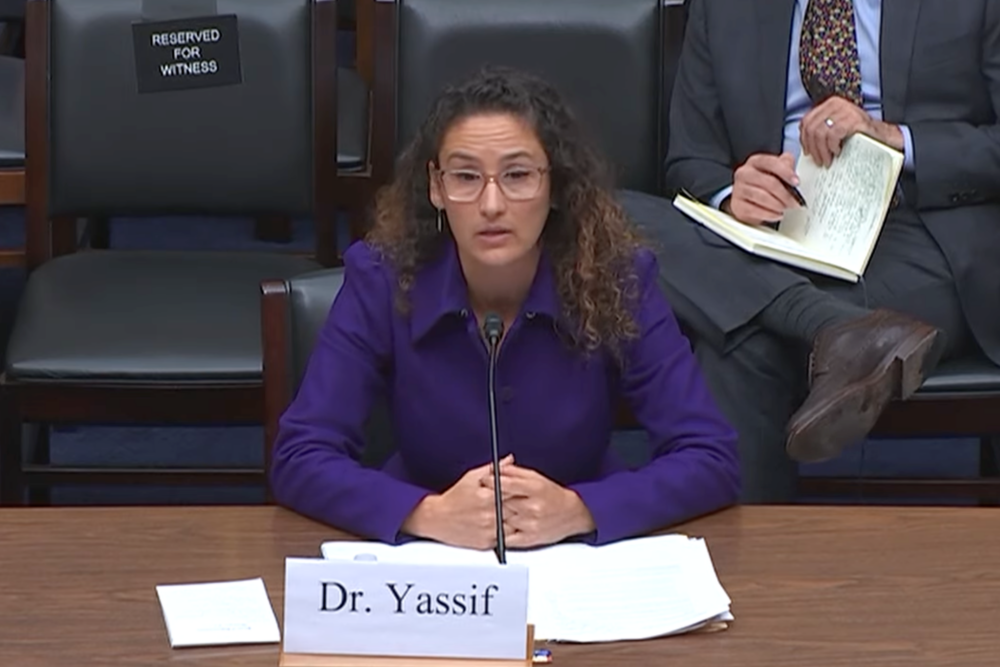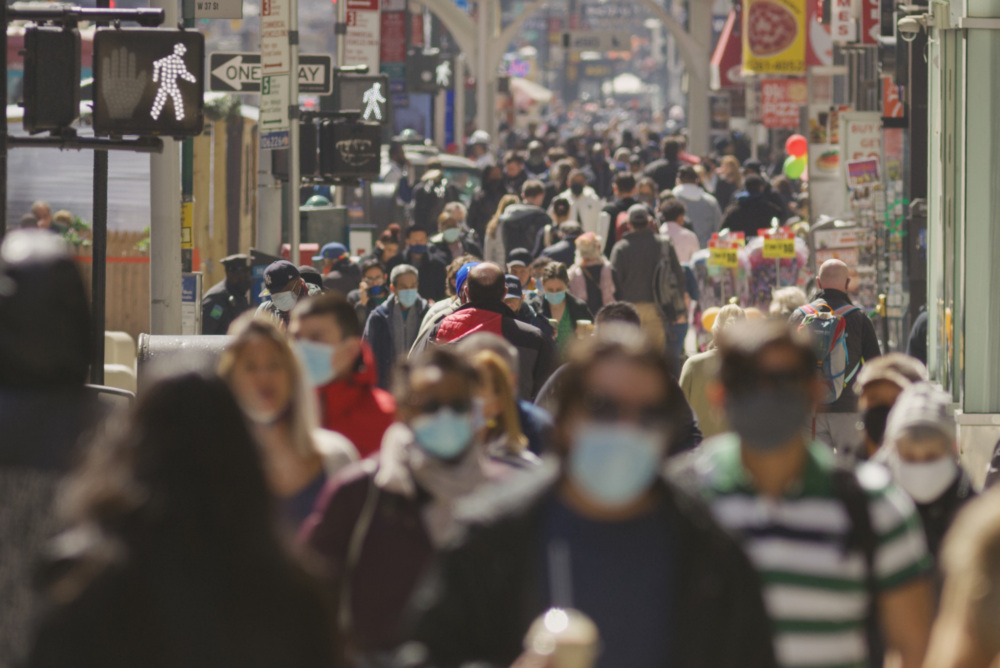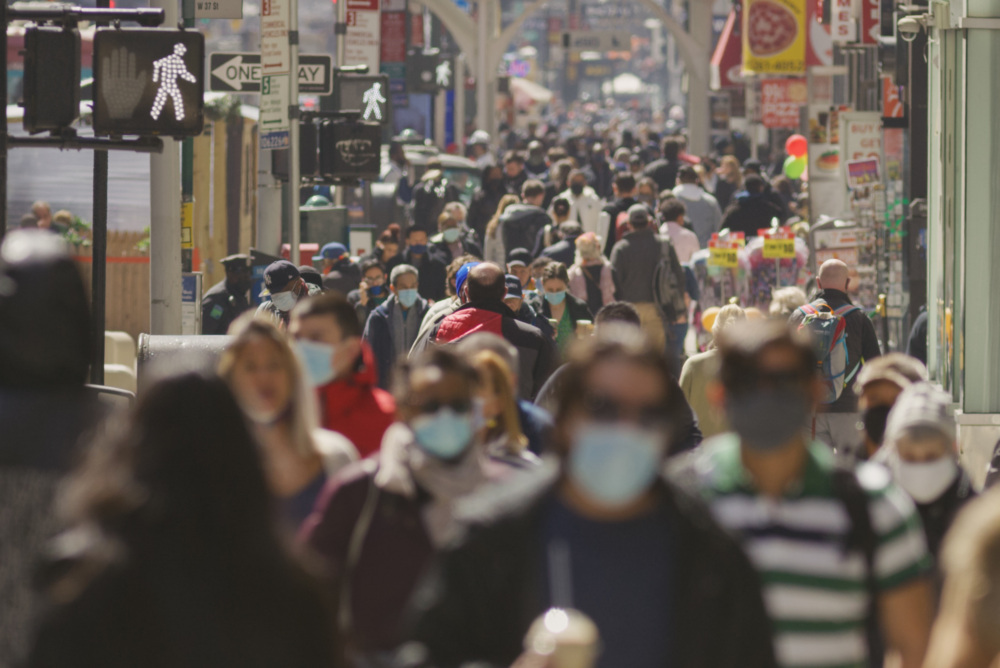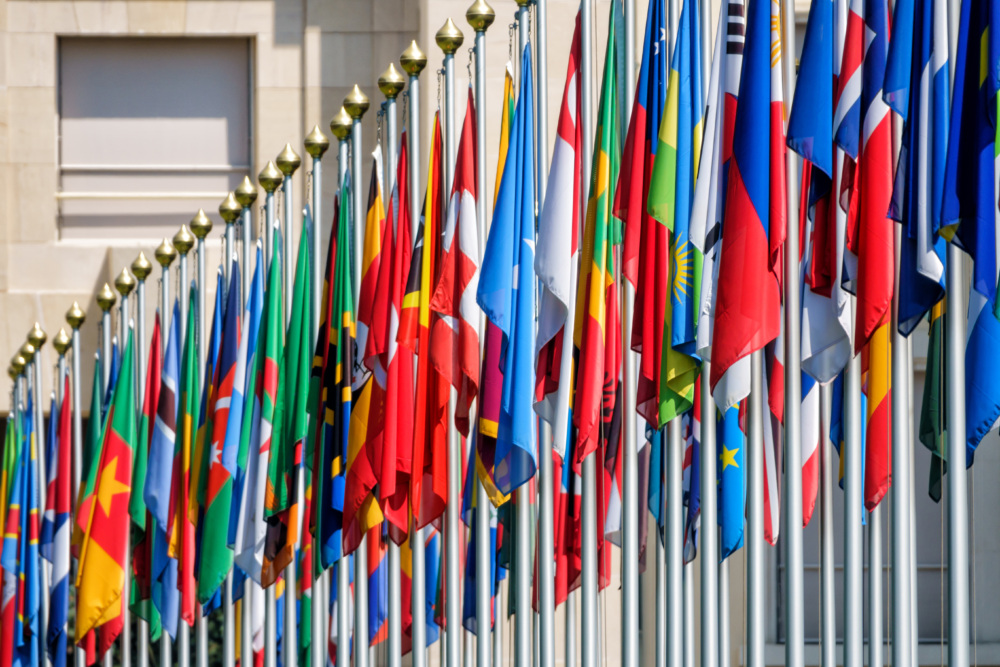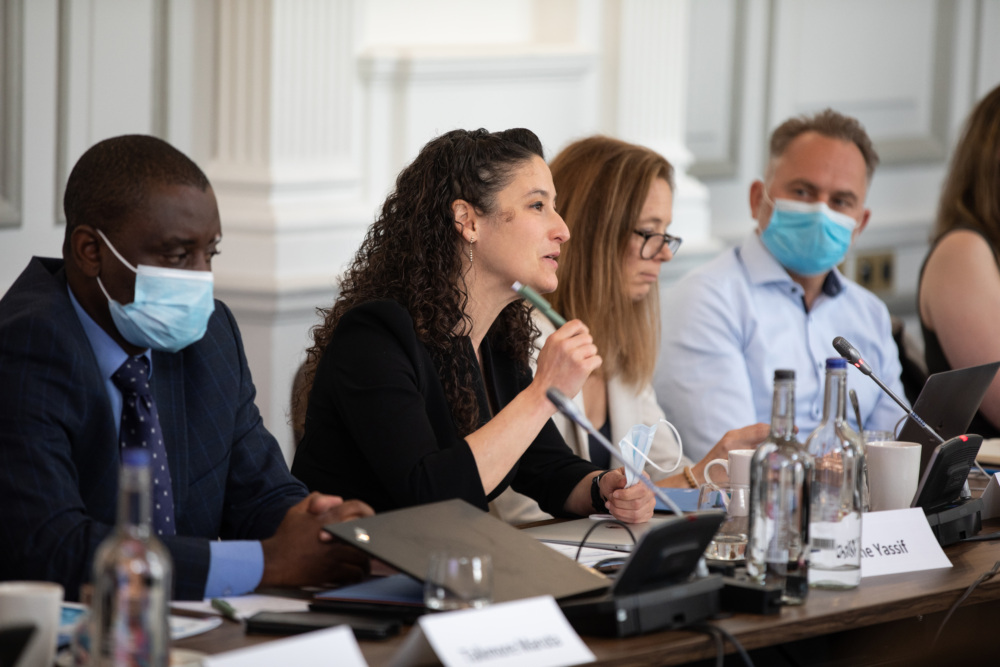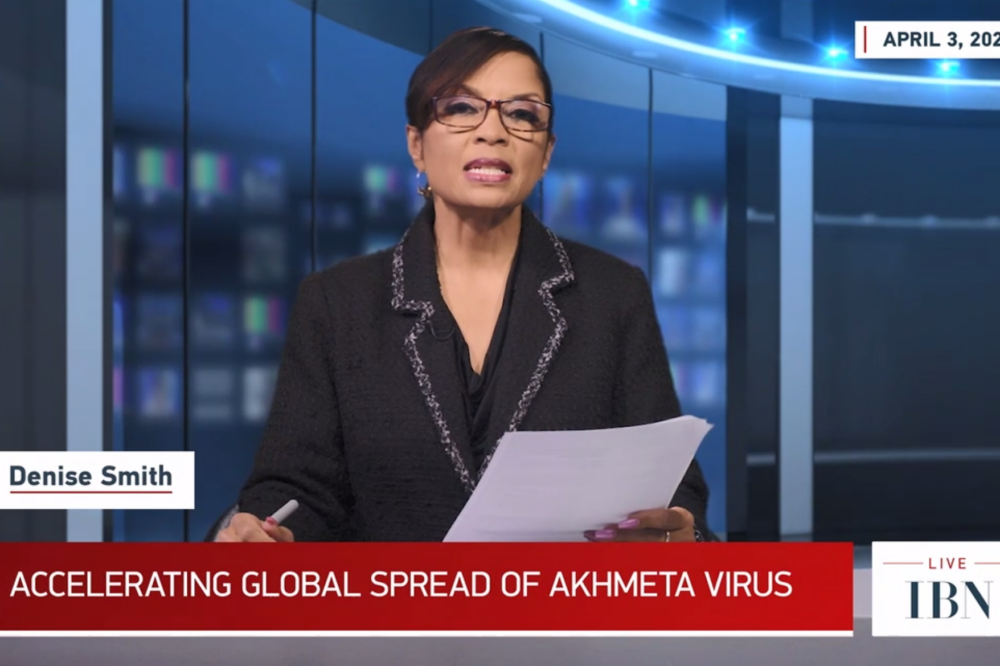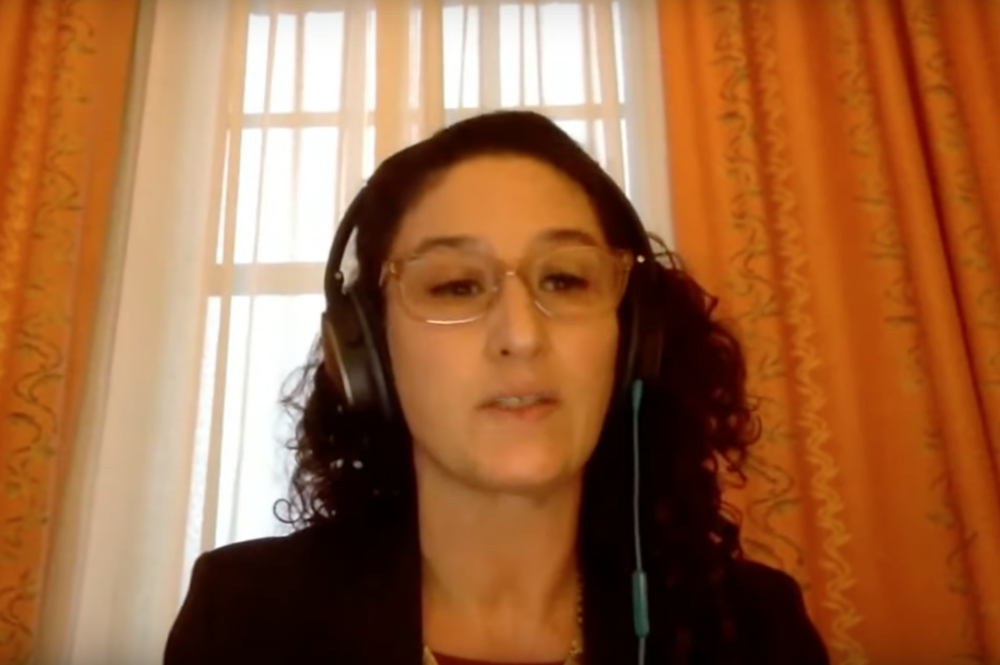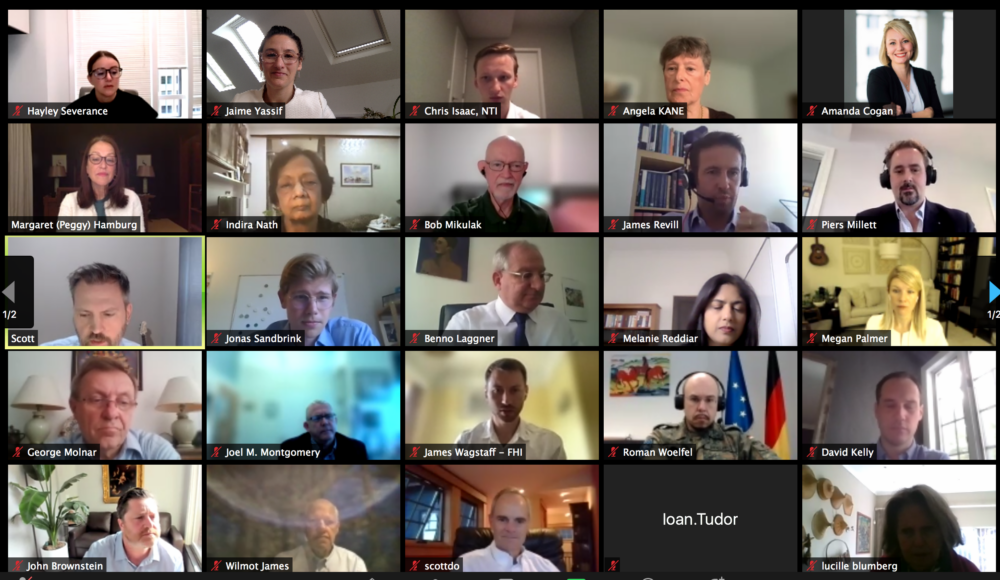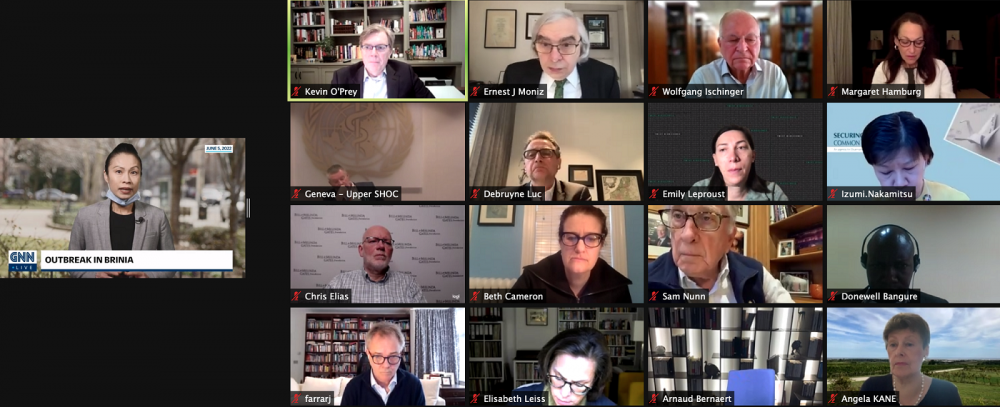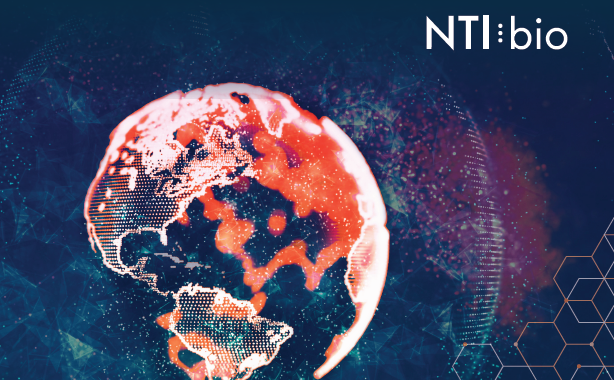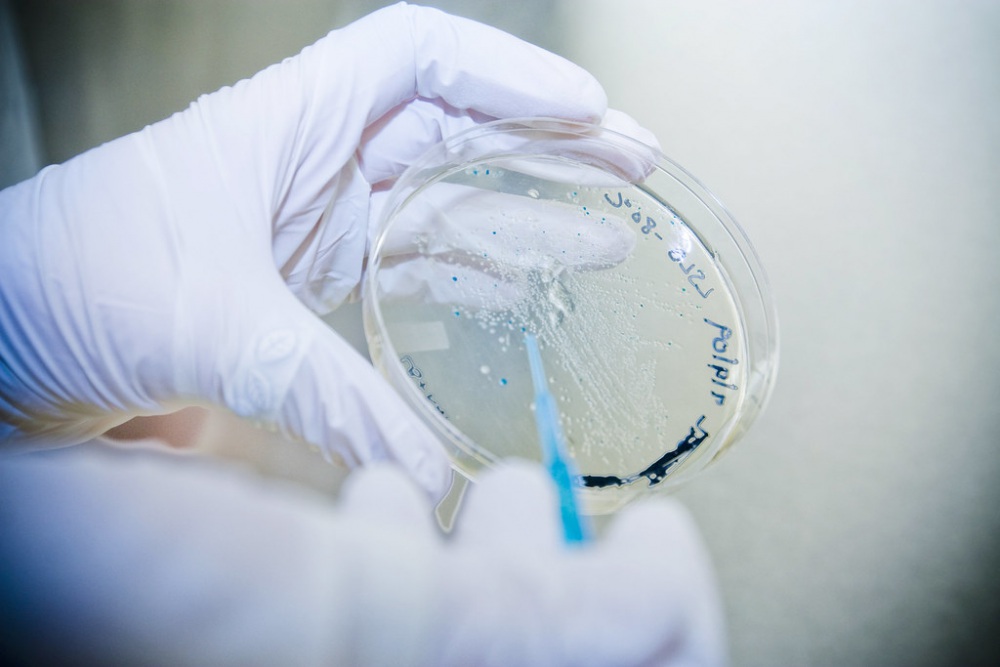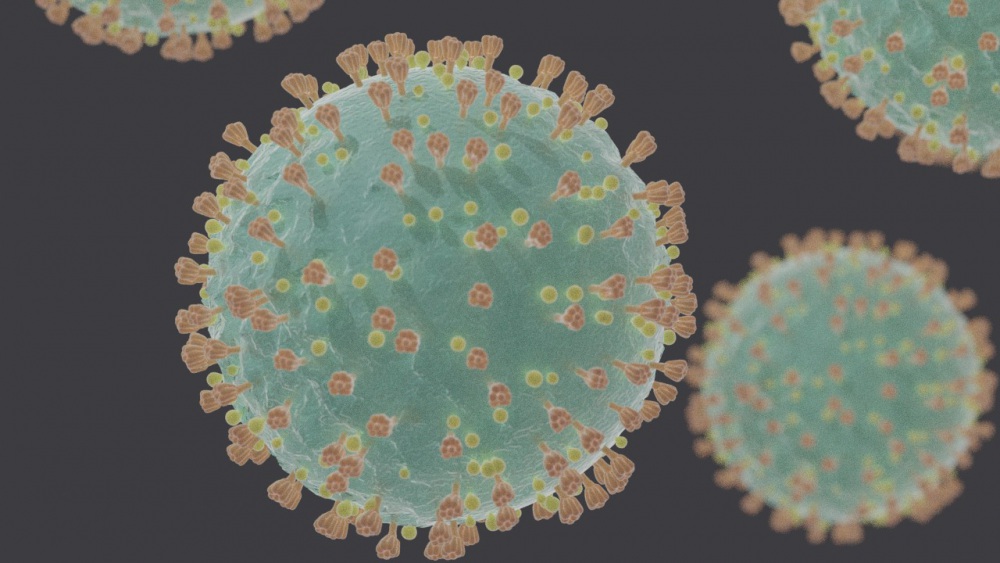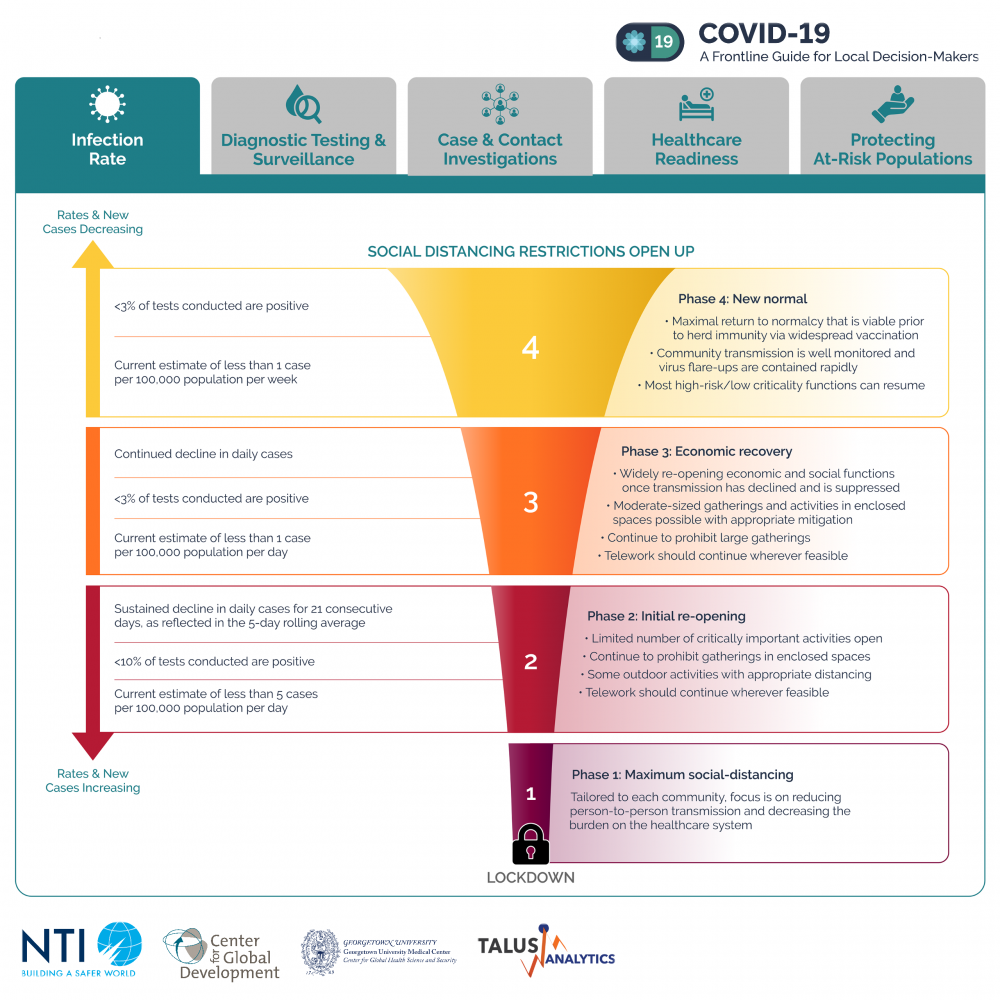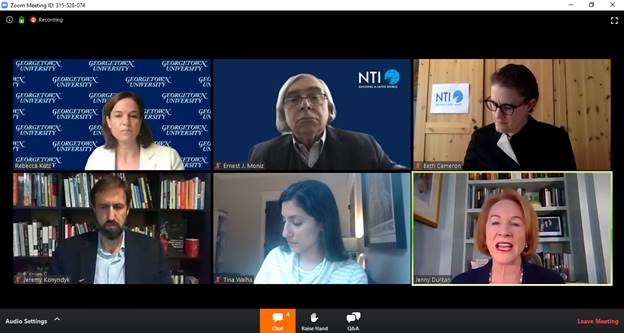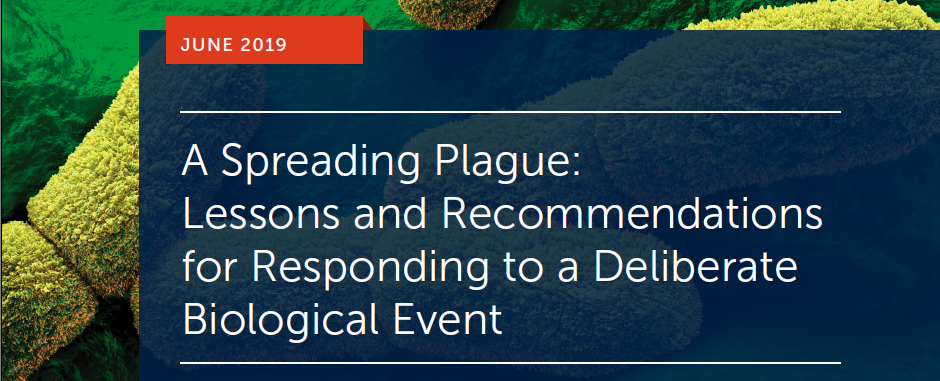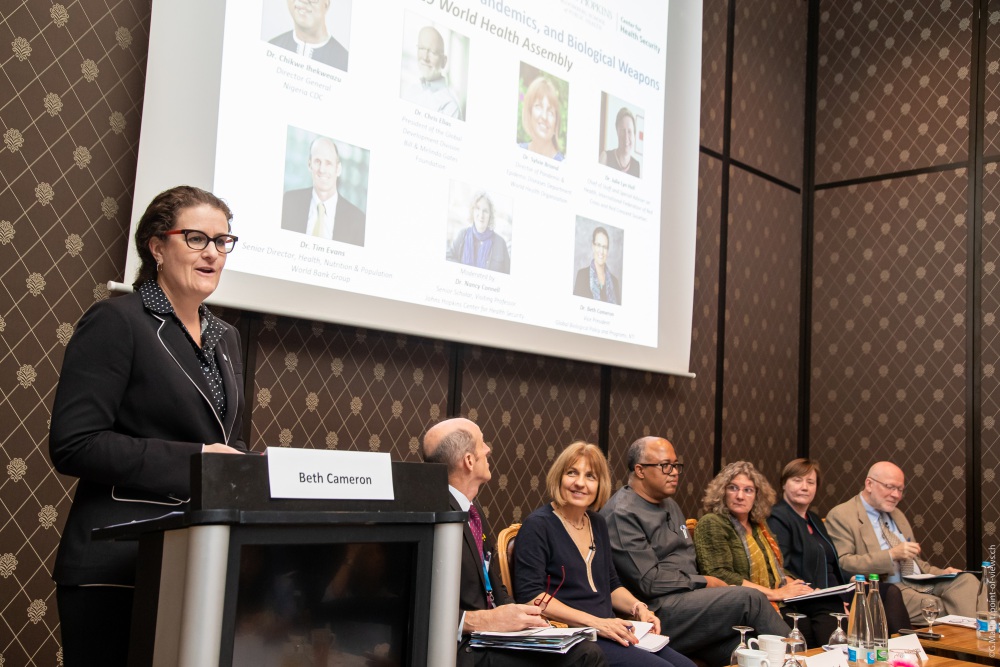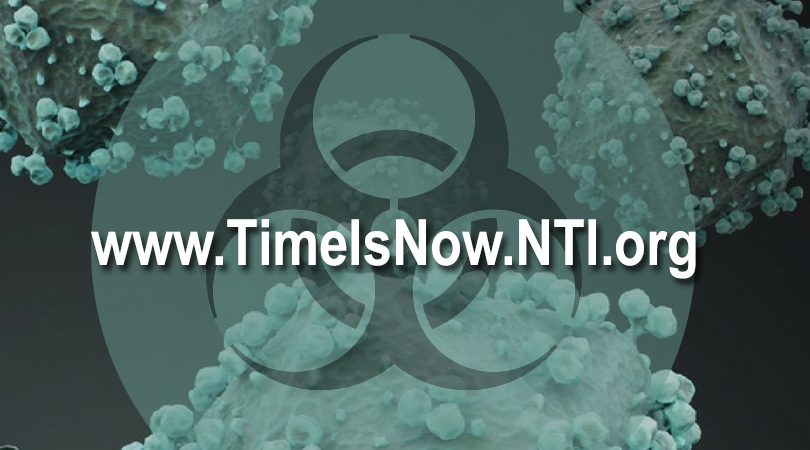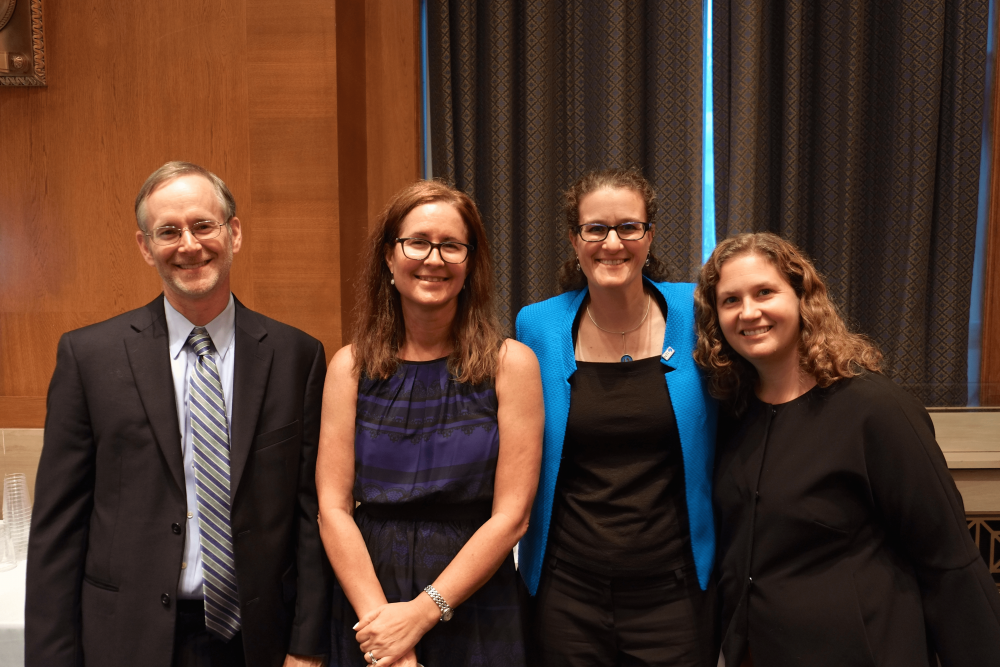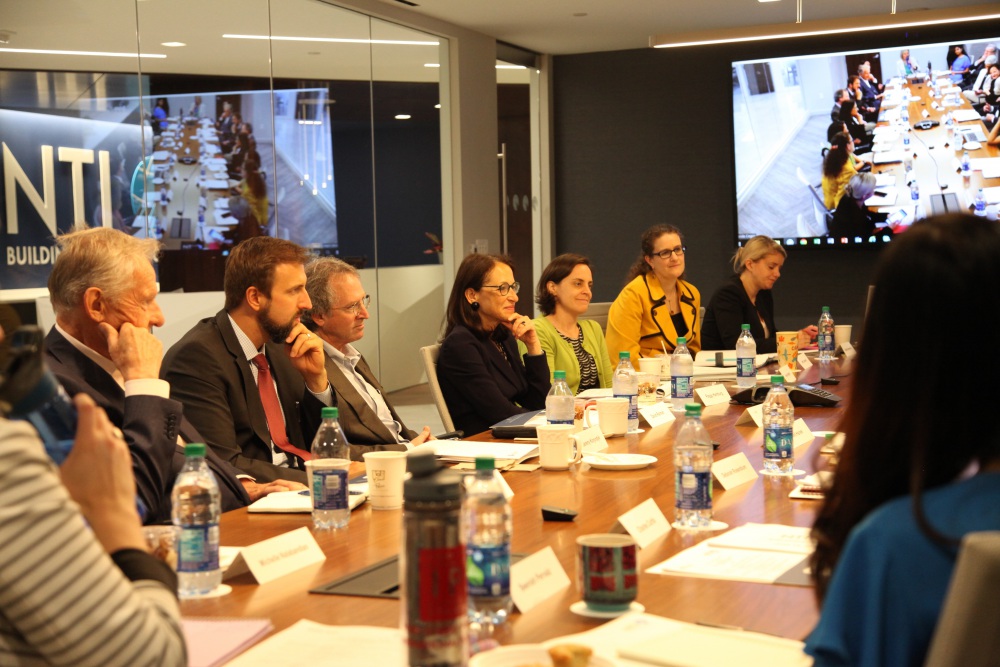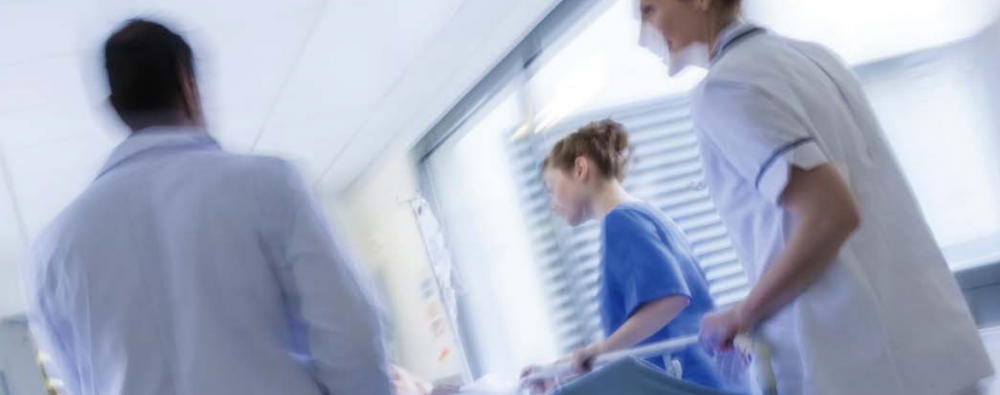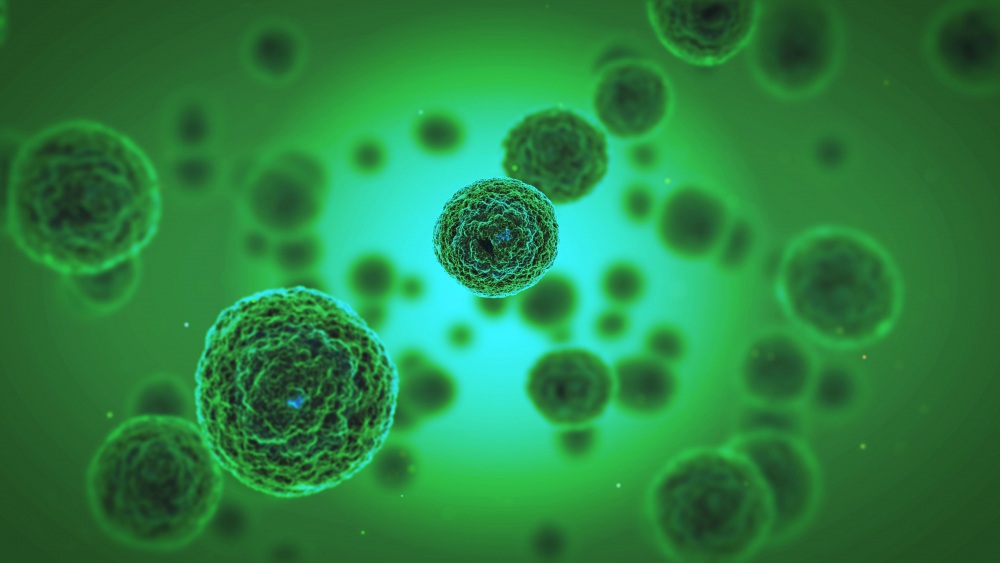
Jaime M. Yassif, Ph.D.
Vice President, Global Biological Policy and Programs
The risk of a catastrophic biological event is growing due to rapid advances in technology, increased global capability to create and engineer pathogens that could cause a pandemic, and the potential for interest in biological weapons by powerful actors, including states and terrorist groups.
Make the case for governments, funders, researchers, and investors to prioritize GCBRs; develop innovative solutions for preventing, detecting, and mitigating global catastrophic biological events; and bolster efforts to prevent the development and use of biological weapons.
Greater awareness of GCBRs among security and public health leaders; commitments and actions by policymakers and practitioners; and a stronger international norms against the development and use of biological weapons.
Global Biological Catastrophic Risks (GCBRs) are biological risks of unprecedented scale that have the potential to cause such significant damage to human civilization that they undermine its long-term potential. Uncontrolled, the impact of a global biological catastrophic event would cause tremendous loss of life; societal instability; prolonged damage to governments and economies, damage to international relationships; and would threaten global security.
GCBRs are increasing for several reasons. First, rapid advances in technology are making it easier to manipulate biological organisms and to create and engineer pathogens and other biological agents. These developments are coupled with potential state and non-state interest in biological weapons. In parallel, the legitimate global bioscience research enterprise continues to conduct experiments involving the creation and enhancement of pathogens with pandemic potential. Finally, laboratory accidents and errors demonstrate the need to proactively identify risks and guard against accidental release.
The risks are further exacerbated by global travel and trade, lack of pandemic preparedness capability, and dependence on a suite of interconnected essential services—power, water, food, health care, telecommunications and the global financial system—that are vulnerable to devastating disruptions.
Unfortunately, the drivers of GCBRs and their potential consequences are not well understood or prioritized by policymakers. In recent years, national governments and the international community have proven unprepared to combat naturally emerging regional epidemics. They are even less prepared for potential future global pandemics, including deliberate or accidental high-consequence biological events that could be unprecedented in scale. GCBRs pose a daunting challenge, and meaningful reduction of these risks will require concerted efforts by governments, international organizations, civil society and the private sector.
NTI’s actions to reduce GCBRs consist of three primary lines of effort:
1. Building a stronger case for decision-makers to prioritize action to counter GCBRs — among governments, international organizations, and global leaders in security, public health, and disaster response.
2. Establishing new forums focused on p
reventing the development and use of biological weapons by powerful actors and strengthening the Biological Weapons Convention.
3. Developing innovative solutions for early detection and rapid response to GCBRs.
NTI | bio convened a workshop on “Disincentivizing State Bioweapons Development and Use” a week ahead of the Biological Weapons Convention Working Group meetings in Geneva, Switzerland.
NTI | bio hosted a lunchtime event on Capitol Hill to discuss how Congress and other decisionmakers can take action to mitigate emerging risks associated with AI-bio capabilities.
Amid significant advances in artificial intelligence (AI), a new NTI | bio report recommends urgent action and oversight by governments, industry, and the scientific community to reduce risks associated with AI-enabled capabilities to engineer living systems.
Jaime Yassif called on government leaders to take urgent steps to strengthen biosafety and biosecurity policy and practices during a hearing convened by the U.S. House Select Subcommittee on the Coronavirus Pandemic.
Testimony of Jaime M. Yassif at U.S. House Hearing on "Strengthening Biosafety and Biosecurity Standards: Protecting Against Future Pandemics"
A new digital report and companion summary detail the findings and recommendations developed from a tabletop exercise held by NTI | bio and the Munich Security Conference.
The authors write about effective strategies for preventing biological events that could rise to the level of a global catastrophe by disincentivizing states from bioweapons development and use.
Dr. Jaime Yassif discussed features of a model national laboratory system for effective public health emergency preparedness and response at a National Academies of Sciences, Engineering, and Medicine (NASEM) workshop this March.
Following the recent detection of monkeypox cases across multiple countries, NTI’s report on the exercise has appeared in a number social media outlets, noting that the associated fictional scenario featured a monkeypox outbreak with a start date that roughly coincides with the current, ongoing outbreak.
NTI Co-Chairman and CEO Ernest J. Moniz and Munich Security Conference (MSC) Chairman Ambassador Wolfgang Ischinger virtually convened 19 global leaders and experts on February 17, 2022 for a high-level tabletop exercise focused on reducing high-consequence biological threats.
NTI | bio Senior Fellow Jaime Yassif, Ph.D., called on government leaders to take urgent steps to prevent future catastrophic biological events during a Dec. 8, 2021 hearing.
A new NTI | bio report released today on the sidelines of the Biological Weapons Convention Meeting of States Parties, “Strengthening Global Systems to Prevent and Respond to High-Consequence Biological Threats,” outlines actionable recommendations for the international community to bolster prevention and response capabilities for high-consequence biological events.
NTI | bio hosted a workshop to explore the prospect of a new, internationally credible “Joint Assessment Mechanism” to rapidly investigate high-consequence biological events of unknown origin.
NTI | Bio, Munich Security Conference Convene Global Leaders for Tabletop Exercise on High-Consequence Biological Threats
COVID-19 highlighted the urgency of preparing for biological threats, including preventing future outbreaks whether naturally occurring, deliberate, or accidental
National and global leaders have a responsibility to take action now to prevent future biological events that could match or surpass the impact of COVID-19.
NTI | bio convened senior leaders from around the world for a scenario-based tabletop exercise designed to identify gaps in global capabilities to prevent and respond to high-consequence biological events.
Past Event
Virtual
Biotechnology research is essential for reducing pandemic threats and supporting the broader global health and development agendas
New COVID-19 Policy Mapping Tool and Database Released to Help Inform Decision Making
These shared metrics and guidance will be incorporated into the COVID-19 response resources for local leaders provided on COVID-Local.org.
As the COVID-19 pandemic continues, local leaders across the United States are working to bolster public health capacity
Past Event
Past Event
Munich Security Conference
International leaders and organizations are unprepared to react with the kind of response needed to investigate and identify the pathogen, prevent the spread of disease.
NTI experts joined government officials and experts from around the world in Geneva at a side event on preventing future high-consequence biological events.
Dr. Jaime Yassif will join the NTI | bio team as a Senior Fellow to implement new projects funded by this grant.
NTI bio publishes interactive infographic exploring major biological vulnerabilities.
NTI | bio and partners brought together congressional staff to highlight the challenges of detecting and responding to an outbreak caused by a novel pathogen.
NTI’s recently expanded Global Biological Policy and Programs (NTI | bio) is launching a high-level advisory group this week.
NTI and partners hosted two workshops for researchers and hospital staff on the risks associated with using cesium-137 irradiators for research and blood irradiation.
Beth Cameron responds to a new framework published by Johns Hopkins that aims to advance scientific dialogue about potential global catastrophic biological risks.
